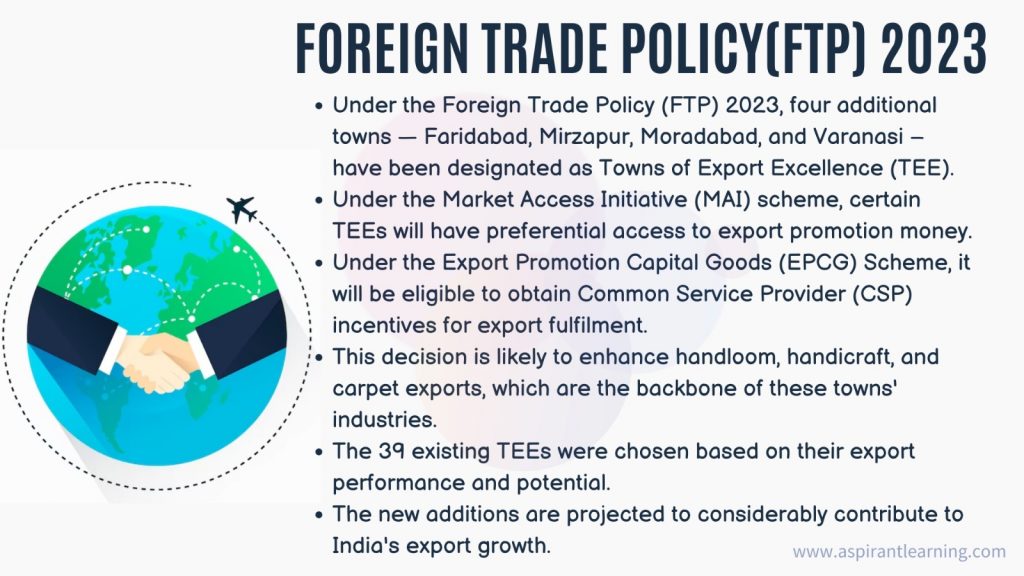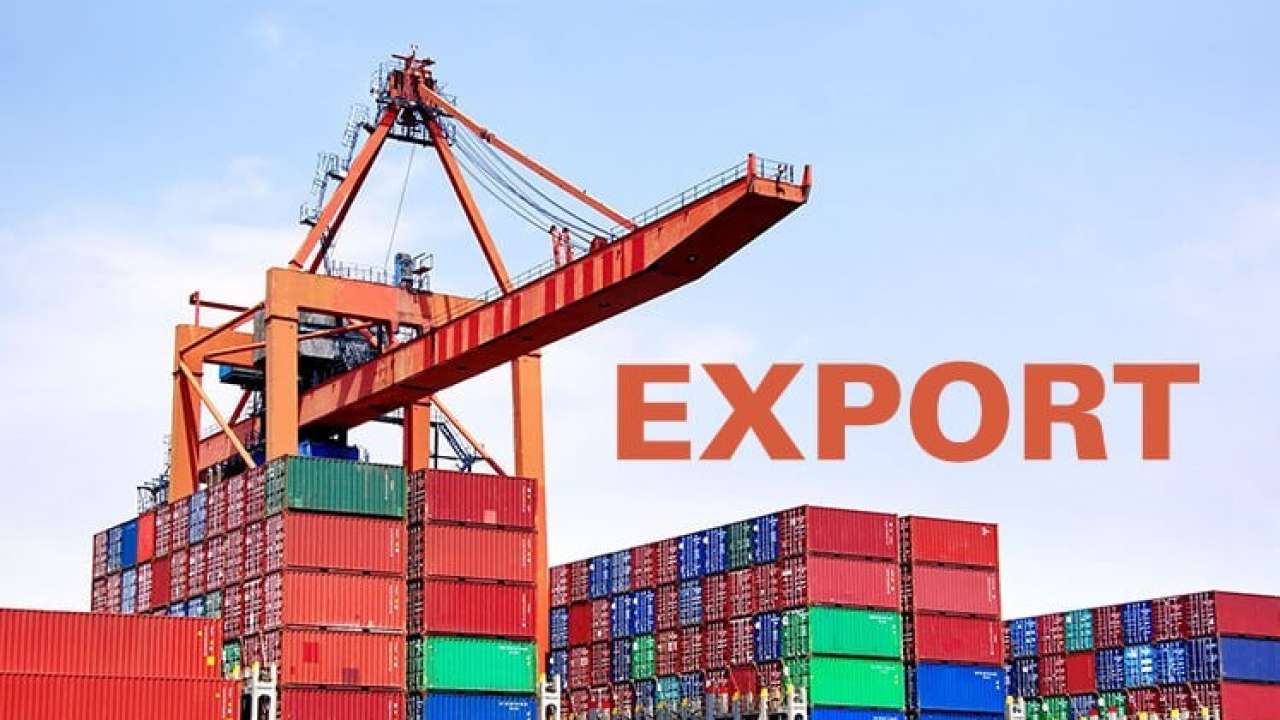News Highlight
New foreign trade policy 2023 aims at tripling goods and services exports by 2030; apart from a one-time amnesty, no significant schemes have been announced.
Key Takeaway
- The Union Ministry of Commerce, Industry, and Textiles revealed a new Foreign Trade Policy that shifted away from offering exporters incentives.
- Nonetheless, it cuts a few fees for smaller businesses, offers faster clearances, and a one-time amnesty scheme for export obligation defaults.
- The new policy will take effect in 2023-24, replacing the previous policy of 2015.
- It seeks to nearly quadruple India’s products and services exports to $2 trillion by 2030, up from $760 billion in 2022-23.
Foreign Trade Policy (FTP) 2023
- Overview
- FTP will ensure policy continuity and a responsive framework.
- Introduces a plan to decrease tariffs, taxes, and government charges on export commodities.
- Digitisation of FTP-related programmes.
- The system automatically approves FTP applications.
- A pilot programme was launched to reduce the processing time of applications for advance authorisation to one day.
- Recognition standards for Star Trade Houses were relaxed.
- Encourages transactions in Indian rupees.
- Introduces provisions for commercial trading.
- A notably advanced authorisation mechanism has been extended to the garment and clothing sector.
- All FTP benefits are extended to e-commerce exports.
- The value limit for courier exports has been raised from Rs 5 lakh to Rs 10 lakh per shipment.
- Through the Districts as Export Hubs project, focus on interacting with states and districts.
- FTP must be dynamic and adaptable to changing trading conditions.
- The Department of Commerce is being restructured to make it more future-ready.
Key highlights of the Policy
- Process Re-Engineering and Automation
- The strategy stresses export promotion and development, shifting from an incentive regime to a facilitating power.
- It is based on technology interface and collaborative principles.
- Fee reductions and IT-based programmes will make accessing export benefits easier for MSMEs and others.
- Duty exemption programmes for export manufacturing will now be implemented via Regional Offices in a rule-based IT system environment, removing the requirement for a manual interface.
- Towns of Export Excellence
- In addition to the existing 39 towns, four new towns have been certified as Towns of Export Excellence (TEE).
- TEEs would be given priority for export promotion financing under the Market Access Initiative (MAI) Programme.
- Under the EPCG Scheme, it can obtain Common Service Provider (CSP) benefits for export fulfilment.
- Promoting Export from the Districts
- The FTP intends to forge alliances with state governments and to advance the Districts as Export Hubs (DEH) project.
- This would boost district-level exports and hasten the development of the grassroots trading ecosystem.
- Streamlining SCOMET Policy
- India is emphasising the regime of “export control.”
- India’s strong export control regime would allow access to high-end dual-use commodities.
- Technology to Indian exporters while permitting the export of prohibited items/technologies from India under SCOMET.
- Amnesty Scheme
- Under the FTP 2023, the government is implementing a unique one-time Amnesty Program to resolve defaults on Export Obligations.
- Furthermore, relief is being provided to exporters unable to meet their duties under EPCG and Advance Authorisations.
- With the payment of all customs duties, all pending cases of failure to meet Export Obligation (EO) of authorisations can be regularized.
- They were exempted according to the number of unfulfilled export obligations.
- Under this system, the interest payable is limited to 100% of the exempted duties.
- Additionally, no interest is charged on the Additional Customs Duty and Special Additional Customs Duty part.

Way forward
- The new FTP focuses more on addressing operational concerns in EXIM operations.
- It reduces the cost of doing business and enhances company-level export competitiveness.
- To enable a mechanism for integrated tax neutralisation via a single point of contact.
- They are reducing logistical costs to make products more competitive.
- Digitisation and e-commerce must complement and integrate government programmes such as one district and product.
- Free trade agreements amongst regional partners should be pursued further to capitalise on trade prospects with leading economies.
Pic Courtesy: DNA India
Content Source: The Hindu



